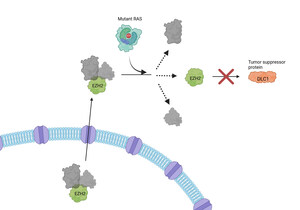Putting the Patient's Quality of Life First in Cancer Care
By the National Cancer Institute
BETHESDA, Md., Aug. 22, 2011 /PRNewswire-USNewswire/ -- Being diagnosed with cancer can be devastating, and the treatment can take its toll in physical, emotional, social, and even spiritual ways. Palliative care providers can lessen the suffering cancer brings to patients and their families—both during treatment and at the end of life. Many people don't realize that palliative care to treat symptoms and improve a patient's quality of life can and should be given throughout their illness, not just at the end of life.
(Logo: http://photos.prnewswire.com/prnh/20110316/MM66939LOGO )
Palliative care treats the symptoms and side effects of cancer and its treatment. The goal is not to cure the patient's cancer, but rather to maintain the best possible quality of life. The physical and emotional effects of the disease can vary widely from person to person, because of differences in cultural background, age, or support systems. Therefore, palliative care providers try to integrate each patient's needs into their care. The social and spiritual needs of the cancer patients and family members are also considered.
Often, palliative care specialists work as part of a team to coordinate care. This palliative care team may include doctors, nurses, registered dieticians, pharmacists, and social workers. Many teams include psychologists or a hospital chaplain as well. Cancer centers and hospitals often have palliative care specialists on staff. Patients may also receive palliative care at home or at a facility that offers long-term care.
Hospice is a form of palliative care that is given to a person when cancer therapies are no longer controlling the disease. This care can take place in homes, at hospice centers, at hospitals, or at skilled nursing facilities Families of the patient are also an important focus of hospice care, and services are designed to provide them with the assistance and support they need.
For patients who are nearing the end of life, the hospice care team can help them and their loved ones prepare for physical changes that may occur. Drugs to help with pain, anxiety, and other symptoms may be used. The team can also help patients cope with the many thoughts and emotional issues that they may be having, such as worries about leaving loved ones behind, reflections about their legacy and relationships, or reaching closure in their lives. In addition, palliative care can support family members and loved ones emotionally, and help with issues such as when to withdraw curative cancer therapy, the transition to hospice care, and grief counseling.
A recent study showed that one in five patients getting hospice care belonged to a minority race or ethnicity. However, sometimes minority communities don't embrace the whole idea of hospice or palliative care, believing that extended families should take care of their loved ones and misunderstanding that palliative care means the end of medical treatment and "giving up" on their loved one. But palliative care does not mean treatment is stopped, and hospice is not a place to discard your loved one. Many spiritual leaders in the minority community appreciate and participate in both palliative and hospice care with the families they serve. It is becoming more and more understood and accepted in many cultures.
If you or your loved one has been diagnosed with cancer, you can ask your doctor for the names of palliative care and symptom management specialists in the community. A local hospice may be able to offer referrals as well. You can also check area hospitals or medical centers to see if they have palliative care programs. You can find more information at the Coping with Cancer: Supportive and Palliative Care page of the NCI Web site.
NCI leads the National Cancer Program and the NIH effort to dramatically reduce the burden of cancer and improve the lives of cancer patients and their families, through research into prevention and cancer biology, the development of new interventions, and the training and mentoring of new researchers. For more information about cancer, please visit the NCI web site at www.cancer.gov/espanol or call NCI's Cancer Information Service at 1-800-4-CANCER (1-800-422-6237). More articles and videos in the culturally relevant Lifelines series are available at www.cancer.gov/lifelines.
SOURCE National Cancer Institute
WANT YOUR COMPANY'S NEWS FEATURED ON PRNEWSWIRE.COM?
Newsrooms &
Influencers
Digital Media
Outlets
Journalists
Opted In






Share this article